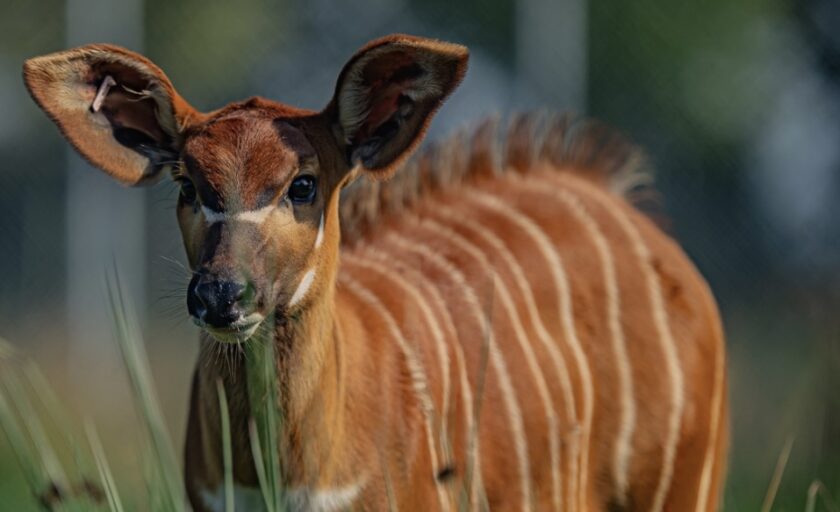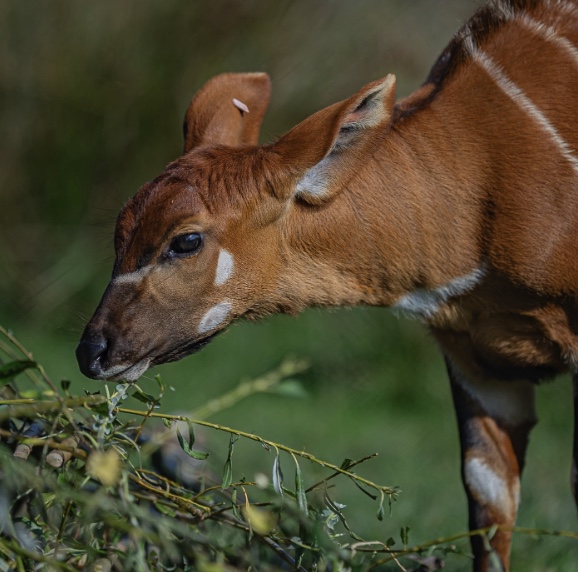Chester Zoo celebrates birth of critically endangered Mountain Bongo

Chester Zoo has announced the birth of a critically endangered mountain bongo, offering a glimmer of hope for a species on the brink of extinction.
The female calf, named Navari, was born to parents Nolliag and Moti after a nine-and-a-half-month pregnancy.
This marks only the second time in 15 years that the zoo has successfully welcomed a mountain bongo calf.
Mountain bongos are the largest forest-dwelling antelope, easily recognisable by their striking reddish-brown coat and white vertical stripes, which help them blend into their forest habitats.
However, the species is listed as Critically Endangered by the International Union for the Conservation of Nature (IUCN), with fewer than 50 individuals remaining in the wild, all in one remote area of Kenya.
Their population has been devastated by habitat destruction, hunting, and other human activities.
Mike Jordan, Chester Zoo’s Director of Plants and Animals, expressed both concern and optimism:
“The mountain bongo is a striking large mammal, and it’s desperately sad to think that its population size has been reduced to such a small number.”
“We fear there could be as few as just 50 now remaining in the wild.”
“Hope, however, is certainly not lost, and our zoo teams are fighting on a number of fronts to ensure that these highly threatened animals have a long-term future.”
The birth is part of a global breeding programme aimed at creating a sustainable population of mountain bongos in captivity.
This is crucial for the long-term survival of the species as plans are underway to reintroduce the animals into the wild in collaboration with conservation partners in Kenya.

Dr Nick Davis, Chester Zoo’s General Manager of Mammals and coordinator of the European breeding programme for the species, highlighted the importance of the new calf:
“Mountain bongo are very shy and elusive animals, and newborns tend to naturally take cover to protect themselves.”
“Calves are born with incredibly large ears, which help them sense ambush predators like leopards and hyenas.”
“We’ve learned so much about their biology and behaviours from important births like this one.”
Chester Zoo is also working alongside Liverpool John Moores University to deploy AI-powered detection systems that monitor mountain bongo populations in the wild.
These efforts, alongside ongoing collaborations with Kenyan conservationists, are key to ensuring the survival of this majestic species.
Conservation teams hope to translocate zoo-born bongos to Kenya to bolster the remaining wild population, which could be a vital step toward recovery.
Spotted something? Got a story? Email: [email protected]
Latest News
